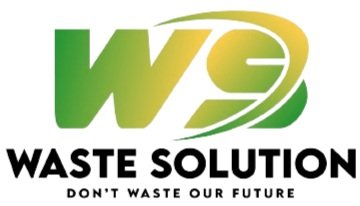The Ultimate Guide to Choosing the Right Dumpster for a Project
When tackling a big project—whether it’s a home renovation, a major cleanout, or a construction job—having the right dumpster can make the process smoother and more efficient.
When tackling a big project—whether it’s a home renovation, a major cleanout, or a construction job—having the right dumpster can make the process smoother and more efficient. But with various sizes and types available, how does anyone know which one is right for the job? This guide breaks down everything needed to know about choosing the perfect dumpster rental to match a project’s needs.
Assessing the Scope of a Project
The first step in picking the correct dumpster is understanding the scope of a project. Is someone cleaning out a garage, remodeling a kitchen, or managing a construction site? The amount and type of debris that can be expected to generate can influence the size and type of dumpster someone needs.
Small Projects: For minor cleanouts, like decluttering a garage, basement, or attic, a smaller dumpster is usually sufficient. These are also great for small DIY projects or yard cleanups.
Medium Projects: Kitchen or bathroom remodels, flooring replacements, and roofing jobs typically produce more waste. A medium-sized dumpster can handle this without taking up too much space.
Large Projects: Full-home renovations, large construction sites, or major landscaping overhauls generate substantial debris. A large dumpster guarantees space won’t run out halfway through the job.
Understanding Dumpster Sizes
Dumpsters are measured in cubic yards, with common sizes that vary from 10 to 40 cubic yards. Here’s a quick breakdown of typical sizes and their best uses:
10-Yard Dumpster: Perfect for small projects like attic cleanouts, minor landscaping, or disposing of heavy materials like concrete or dirt. Compact and easy to fit in driveways.
20-Yard Dumpster: A versatile choice for medium-sized projects such as kitchen renovations, roofing jobs, or larger yard cleanups. It holds more waste without being overly bulky.
30-Yard Dumpster: Perfect for bigger home renovation projects, new construction, or significant decluttering efforts. It’s large enough to handle bulky items without overflowing.
40-Yard Dumpster: The go-to option for major construction projects, large-scale demolitions, or commercial cleanouts. It offers maximum capacity for substantial waste volumes.
Considering the Type of Debris
Not all dumpsters are created equal—some are designed specifically for certain types of debris. Knowing what will be disposed of helps guarantee the right type of dumpster.
General Waste Dumpsters: Best for household junk, furniture, and non-hazardous materials from cleanouts and renovations.
Construction Dumpsters: Designed for heavier materials like concrete, brick, asphalt, and drywall. These dumpsters are created to handle the weight and volume of construction debris.
Yard Waste Dumpsters: Ideal for organic materials like branches, leaves, grass clippings, and dirt. Some rental companies require a separate dumpster for yard waste to comply with recycling regulations.
Specialty Dumpsters: For projects involving hazardous materials, electronics, or appliances with refrigerants, specialty dumpsters or additional services may be needed.
Space Considerations
Before renting a dumpster, consider where it can be placed. Make sure there’s enough space on the property for the dumpster to be delivered and picked up. Driveways are common spots, but confirm they’re wide enough to accommodate the dumpster and the delivery truck.
If street placement is necessary, check with local regulations to see if a permit is required. Some municipalities have restrictions on where dumpsters can be placed and how long they can stay.
Weight Limits and Restrictions
Every dumpster has a weight limit, and exceeding it can result in additional fees. Construction debris, in particular, can become heavy quickly. Understanding the weight limits of any chosen dumpster helps avoid unexpected costs.
Be aware of prohibited items, too. Hazardous materials like paint, chemicals, and certain electronics are not allowed in standard dumpsters. Always check with a rental provider for a full list of restricted items.
How Long is the Dumpster Needed?
Most dumpster rental companies offer flexible rental periods, ranging from a few days to several weeks. Estimate how long a project may take and discuss rental duration options with providers. If a project timeline extends unexpectedly, many companies allow for extensions, though additional fees may apply.
Cost Considerations
Dumpster rental costs vary based on size, rental duration, location, and the type of debris. Larger dumpsters and longer rental periods typically come with higher prices. Some companies include delivery, pickup, and disposal fees in the rental cost, while others charge separately.
Request a clear, upfront quote from a rental provider to avoid surprises. Ask about potential additional charges for exceeding weight limits, extending rental periods, or disposing of prohibited items.
Benefits of Professional Dumpster Rental Services
Working with a professional dumpster rental company provides a hassle-free experience. Professionals provide guidance on selecting the right dumpster size and type, offer flexible delivery and pickup options, and handle proper disposal of waste materials.
They also help navigate local regulations and permits, guaranteeing compliance with all requirements. Professional services streamline the waste management process, allowing focus on completing any project efficiently.
Final Thoughts on Choosing the Right Dumpster
Selecting the right dumpster for a project doesn’t have to be complicated. By assessing the scope of a project, understanding the types of debris, and considering factors like space and weight limits, anyone can choose a dumpster that meets their needs perfectly.
Professional dumpster rental services provide the expertise and support needed to make the process smooth and efficient. With the right dumpster in place, you’ll be well-equipped to handle any project, big or small, without the stress of managing waste.
When in need of residential yard cleanout, dumpster rental, electronics recycling, garage cleanout, and other junk removal in Maricopa County, trust only Waste Solution. We offer 10-yard dumpster rental, 15-yard dumpster rental, 20-yard dumpster rental, 30-yard dumpster rental, and 40-yard dumpster rental along with inert/clean material dumpster rental. Call today to benefit from our years of industry experience.

